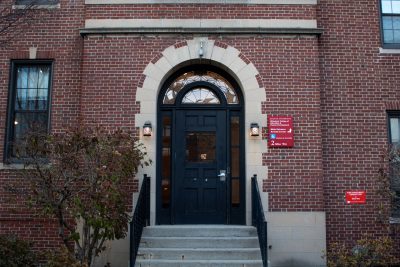The push to dismantle the Department of Education is almost as old as the department itself. Republicans have pushed to dismantle it since its inception, calling it a “crazy quilt of wasteful programs” in an official party platform in 1980 and accused it of “meddling in our schools” in 1996.
President Donald Trump issued an executive order calling for the department’s closure March 20, putting into effect this long-standing Republican initiative by terminating nearly half of its workforce and moving functions like the federal student loans portfolio to other agencies.

Trump said the department is “doing us no good” in its current form.
Community members of Boston University Wheelock College of Education and Human Development said otherwise.
Rob Martinelle, a senior lecturer of social studies education at Wheelock, said the move to decentralize school funding in the U.S. is nothing new.
“It’s long been a dream of so-called conservatives to abolish the Department of Education,” Martinelle said. “But underlying that has always been the goal to defund public education so that it can be further privatized.”
Sophie Wilson, a senior at Wheelock who studies education and human development and plans on becoming a high school social studies teacher, said Trump’s claims about the benefits of dissolving federal funding will only further destabilize low-income state education systems.
“Unfortunately, as an educator, I know all too well that is not how it works,” Wilson said. “When we take federal aid away from places like Alabama or Arkansas, which are some of our lowest ranked states … there’s really no strong foundation for the state itself to fall back on.”
While the Department of Education had little say over individual state curriculums, the move for its closure still ultimately affects classrooms.
Some of DOE’s functions, such as Title I, which oversees financial assistance to low-income districts and families, would be among the programs affected that might directly impact classrooms.
Eli Tucker-Raymond, a research associate professor in Wheelock and assistant director of Research and Mentoring at the Earl Center for Learning and Innovation, said one of the main issues has to do with funding.
“It’s going to be the schools that are the poorest, and school districts that are the poorest that are going to be the most affected,” Tucker-Raymond said.
Owen Bauer-Lepofsky, a sophomore in Wheelock, shared a similar concern.
“A lot of our Boston public schools are Title I funded schools, and without that funding, they will lose the ability to provide breakfast and lunch,” Bauer-Lepofksy said. “So even if the curriculum doesn’t get affected that much, I think the actual learning experience will be really different for a lot of populations of students, especially Title I schools and special ed students.”
Tucker-Raymond saw the reallocation of federal funding as indicative of a common de-emphasis on learning itself, saying “people may be treated more like consumers or clients” than students.
Bauer-Lepofsky said there’s a collective anxiety surrounding the new order and its effects.
“We’re all kind of living through it together, including our professors, which definitely makes it an interesting dynamic that we all are figuring everything out as we go,” Bauer-Lepofsky said.
Wilson also expressed concern about preparing for a career with an uncertain future at a time when educators and classrooms are being under fire.
“The fact that [the order] was even brought to the table so early in the administration shows what a clear disregard this country has for education,” Wilson said. “I truly don’t understand why anyone would go into this field with the current administration doing what it says it’s going to do.”
At an institutional level, community members also expressed anxiety about the future of funding for Wheelock College, especially for those working in or planning on pursuing a career in equity-based education initiatives.
“Dismantling the Department of Education is part of a broader effort to undermine equity efforts,” Tucker-Raymond said. “The University is going to have to figure out ways to supplement that and to stick to their commitments and ideals at the threat of losing money.”
Bauer-Lepofsky said he is facing uncertainty about both his future as an educator and that of public education as a whole.
“We’ll be going into a field that’s probably going to be very different if this goes through in five or 10 years then it is now,” Bauer-Lepofsky said. “I think there’s definitely a lot of uncertainty about what that will mean.”
While the effects of this executive order on Wheelock directly are still unclear, Martinelle said he thinks the program already embraces a need to prepare students for ever-morphing policies.
“We’re preparing teachers to be adaptable and also make sure that they understand that they have the agency to resist things that, quite frankly, don’t serve their students’ interests,” Martinelle said. “If anything, it’s certainly reinforcing the importance of that mission.”





















































































































